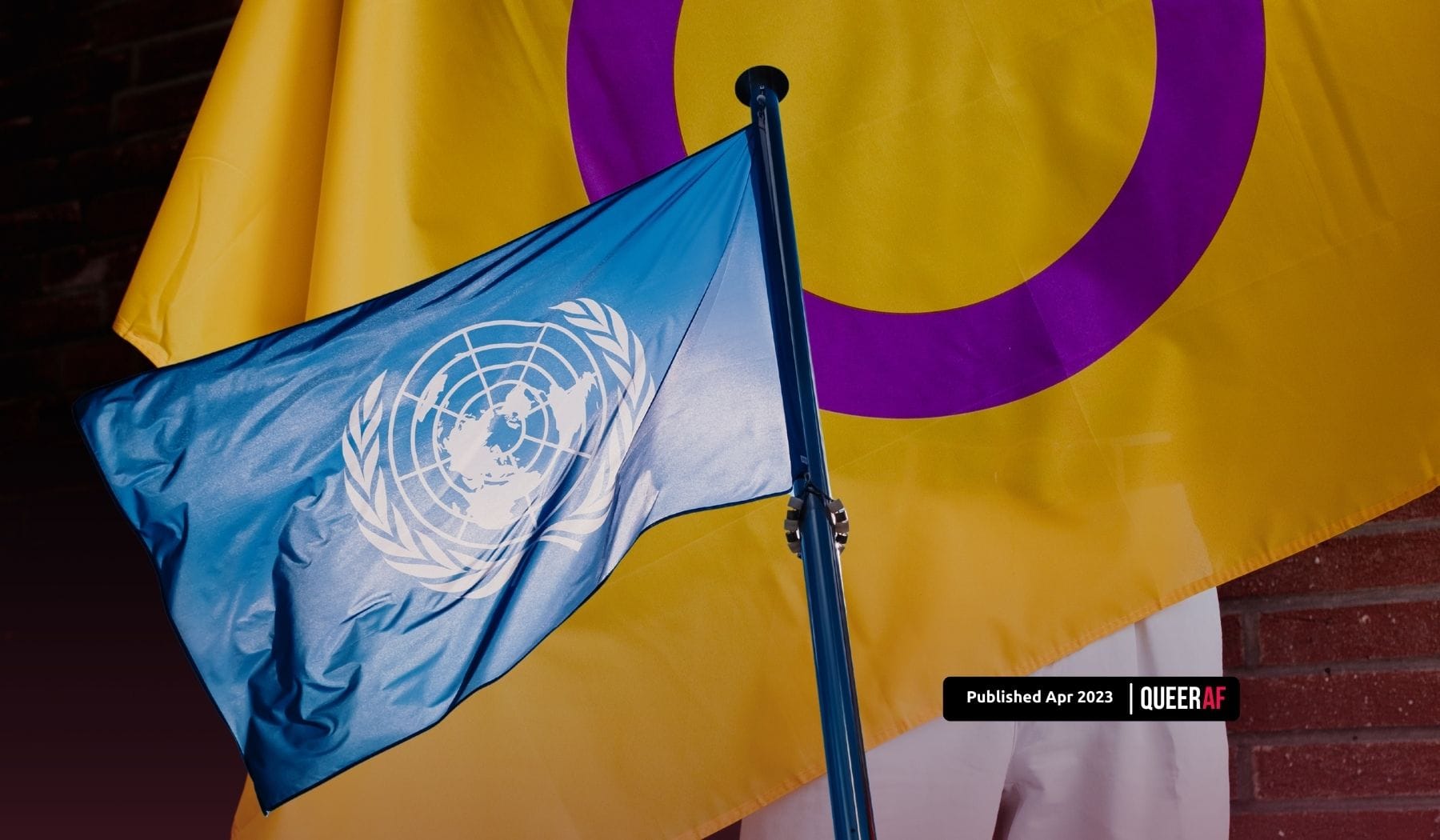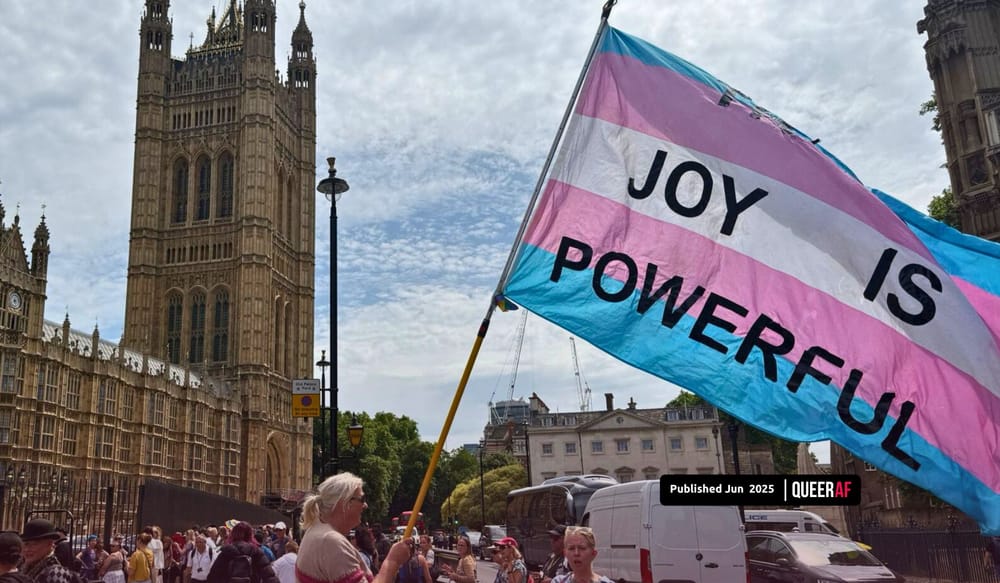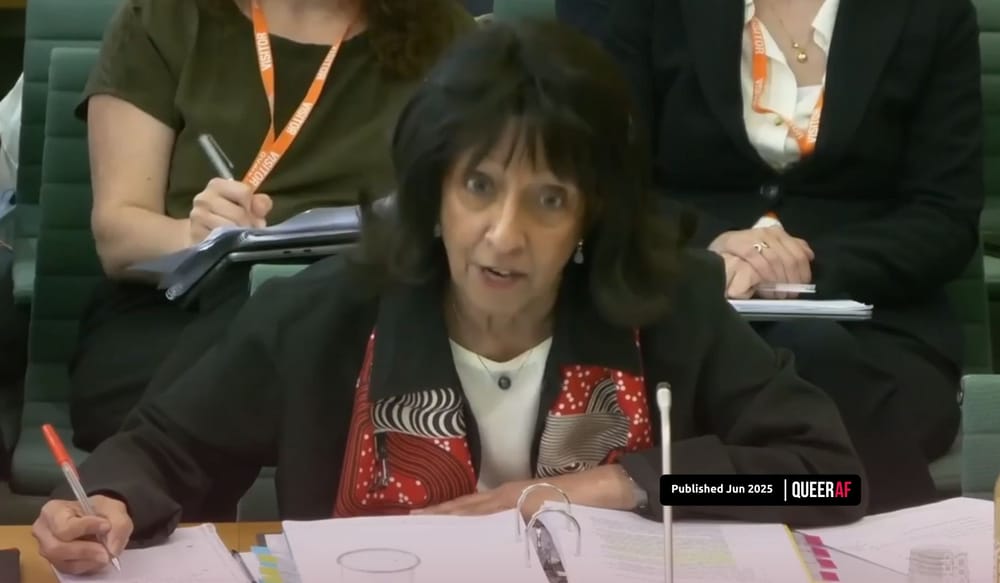TL;DR: One of the most marginalised and forgotten parts of the LGBTQIA+ community was the focus of a landmark resolution that will set in motion a new global evidence-gathering process. Intersex people commonly face a series of abuses including unnecessary, irreversible surgeries as children.
The United Nations Human Rights Council has passed its first-ever resolution about the rights of intersex people.
Twenty-four countries voted for the draft resolution, which calls on states to “enhance efforts to combat discrimination, violence and harmful practices” against individuals born intersex and those defined as having sex characteristics that do not appear to match the sex they're being assigned with at birth - The Hill
Human Rights Watch says it's a signal of growing international resolve to address rights violations experienced by people born with variations in their sex characteristics.
The resolution was put forward by the governments of Australia, Chile, Finland, and South Africa and is called “Combating discrimination, violence and harmful practices against intersex persons.”
Why is this resolution important?
Children born with variations in their sex characteristics that fall under the umbrella of ‘intersex’ are often subjected to irreversible, risky, and medically unnecessary surgeries as children.
These surgeries attempt to bring young people's bodies in line with what is deemed appropriate by gender norms and stereotypes. The decision to have these surgeries is frequently made by parents or doctors, without the consent of the children in question.
Intersex activists have long been calling for a ban on these practices all across the world, arguing that these surgeries are unnecessary and people should be able to decide on their own merits whether to have them as adults instead.
How common is being intersex?
The UN cited experts who said approximately 1.7 per cent of people have an intersex trait. However, this number could, like many attempts to estimate the LGBTQIA+ community, be a massive underestimate - NBC
The number of different intersex variations there are is an ever-increasing number as we understand more about bodies and the broader spectrum of sex variations.
What happens next?
The resolution paves the way for the first-ever official UN report on the human rights situation of intersex people. Due in 2025, it will collect a key set of evidence about the widespread abuses faced by intersex individuals. It is expected to explore and detail the extent of forced medical interventions as well as social stigma and legal hurdles faced by intersex people - Diva
Analysis: Learning about the intersectionalities in our community is powerful for us all
The nuances of the different struggles we face across our broad church community require focused, specific and enduring approaches led by people with direct lived experience of them. And yet, we all have so much to learn and benefit from each others liberation.
So-called ‘gender criticals’ claim that sex is immutable - but their story leaves out the 1.7% (maybe more) of the global population who are living proof that it's not. Equally, where is the outrage about irreversible surgeries conducted on pre-teen kids to make them 'normal' according to gender stereotypes?
By expanding our understanding of the different and beautiful parts of our community, we can all win faster together.

A handful of billionaires are tightening their grip on the information ecosystem.
- Elon Musk's has turned Twitter from a platform once rich with queer communities into one that amplifies bigotry and conspiracy theories that punishes you for using the word cis, and gives free reign to anti-trans hate
- Meta CEO Mark Zuckerberg has downgraded accounts like QueerAF on Instagram by limiting 'political' content by default, instead prioritising memes and celebrity gossip.
QueerAF comes directly to your inbox, so the LGBTQIA+ news you deserve to understand isn't filtered by billionaire's agendas.
That's why we need your help.
After a huge surge in the last few weeks, QueerAF now has over 3000 readers. That's great news, but it's also meant an increase in costs for the essential infrastructure we use to deliver this newsletter.If more readers upgrade to paid and become QueerAF members, we can invest in alternative growth strategies, reach more people and keep our unique non-profit newsroom's growth on track.
Crucially, we could produce more groundbreaking queer accountability journalism, the likes of which the rest of the gay media are seemingly giving up on as they, too, pivot into tabloid gossip and away from underserved queer news stories.
Join over 200 paid QueerAF members who help keep this newsletter free for everyone today.











